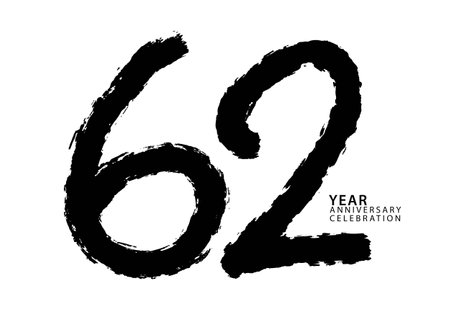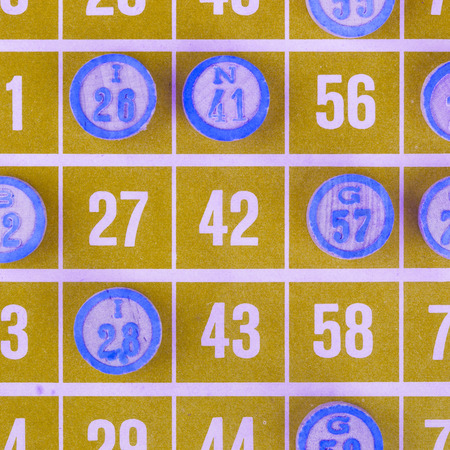Introduction: Blending Numerology with British History
Numerology, the ancient art of interpreting the mystical significance of numbers, has captivated thinkers and seekers across centuries. While often associated with personal destiny and self-discovery, numerology also offers a unique lens through which to view the collective experiences of nations. In Britain—a land steeped in tradition, symbolism, and ritual—the resonance of numbers subtly weaves its way through royal ceremonies, national events, and even popular culture. From coronation dates to wartime turning points, numbers have not only marked but often shaped pivotal moments in British history. By exploring these milestones through numerology’s framework, we can uncover hidden patterns and gain fresh insights into the forces that have influenced the British narrative. This approach invites us to reconsider familiar events, connecting them to cycles of growth, challenge, and transformation that echo both personally and collectively within the fabric of British society.
2. Moments that Shaped a Nation: Linking Dates with Numerological Meaning
Britain’s history is punctuated by defining moments, each leaving an indelible mark on the nation’s identity. But what if we viewed these milestones through the lens of numerology? By converting historical dates to their “personal year” numbers, we unlock fresh perspectives on why these events resonate so deeply in the British psyche. Below, let’s delve into three iconic moments—the signing of the Magna Carta, the Battle of Britain, and Her Majesty The Queen’s coronation—and interpret their numerological significance.
Key Events and Their Numerological Insights
| Event | Date | Numerology Calculation | Personal Year Number | Symbolic Interpretation |
|---|---|---|---|---|
| Signing of Magna Carta | 15 June 1215 | 1+5+6+1+2+1+5 = 21 → 2+1=3 | 3 | The number 3 symbolises creativity and communication—fitting for a charter that laid the groundwork for parliamentary democracy and civil liberties in Britain. |
| Battle of Britain Begins | 10 July 1940 | 1+0+7+1+9+4+0 = 22 → 2+2=4 | 4 | The number 4 reflects endurance, stability, and determination—qualities epitomised by the British spirit during this pivotal wartime defence. |
| The Queen’s Coronation | 2 June 1953 | 2+6+1+9+5+3 = 26 → 2+6=8 | 8 | An 8 year is linked to authority, achievement, and recognition—apt for a moment marking national unity and continuity under a new monarch. |
Cultural Reflections: Why Numerology Resonates in Britain
This numerological approach offers more than just quirky trivia; it invites us to reinterpret history with a modern twist. Britons have always valued symbolism—consider how anniversaries or commemorative coins are celebrated. By mapping numerology onto historical events, we engage with our past in a way that feels both personal and collective, adding an intriguing layer to our understanding of “Britishness”. These interpretations don’t rewrite history but enrich our appreciation of its enduring impact.

3. Monarchs, Their Years, and the Numbers Behind the Throne
When we look at British monarchs through the numerological lens, it becomes striking how their personal year cycles seem to echo the tides of their reigns. Take Queen Elizabeth II, for instance: her accession in 1952 aligned with a numerological “1 Year” — a time associated with new beginnings, leadership, and forging one’s path. Fittingly, her reign became a new epoch for post-war Britain, marked by modernisation and resilience. Similarly, King Henry VIII ascended during a “5 Year”, numerologically symbolic of change and upheaval; his reign is remembered for its seismic shifts — the English Reformation and break from Rome. These patterns aren’t just coincidence; they mirror how numerology often captures the energy underpinning historical turning points. By examining the ruling years of monarchs like Queen Victoria or King George VI, we find that their pivotal moments — be it expansion of the empire or wartime leadership — frequently sync with personal year cycles resonating with growth, crisis, or transformation. This interplay between numbers and monarchy adds a fascinating dimension to our understanding of British history, suggesting that behind every coronation and royal decree lies a subtle numerical rhythm shaping both decisions and destinies.
4. Reform and Revolution: When Numbers Signal Change
British history is punctuated by periods of seismic reform—moments when society shifted on its axis and the old order gave way to new realities. Through a numerological lens, these transformative eras, such as the Industrial Revolution or the suffrage movement, can be read not just as inevitable progressions but as times when the collective “personal year” of the nation resonated with change. Numerology, with its focus on cycles and symbolic meanings, offers a unique perspective on why certain years felt so ripe for revolution.
The Numerological Pulse of Transformation
In numerology, specific numbers are linked to particular energies: the number 1 signifies beginnings and independence, while 5 stands for freedom and upheaval. Looking at key years in British reform movements, we often find these numbers at play. For instance, the year 1832—the passing of the Great Reform Act—reduces to an 8 (1+8+3+2=14; 1+4=5), highlighting themes of freedom and social restructuring. Similarly, 1918, marking women’s suffrage, also reduces to a 1 (1+9+1+8=19; 1+9=10; 1+0=1), echoing new beginnings and pioneering spirit.
Key Moments: Numbers in Action
| Event | Year | Numerological Reduction | Numerological Theme |
|---|---|---|---|
| Great Reform Act | 1832 | 5 | Freedom & Change |
| Factory Act | 1833 | 6 | Harmony & Responsibility |
| Suffrage for Women Over 30 | 1918 | 1 | New Beginnings & Leadership |
| Representation of the People Act (Full Suffrage) | 1928 | 2 | Partnership & Balance |
| Abolition of Slavery Act | 1833 | 6 | Caring & Justice |
Navigating Change: Numerology as Mirror and Compass
If we accept that numbers reflect deeper currents in human affairs, then these reformative years show more than coincidence—they suggest that Britain’s great leaps forward were synchronised with powerful numerological tides. The alignment of numerical symbolism with historical events invites us to see reform not only as a response to material conditions but also as a dance with unseen rhythms. For those attuned to numerology’s logic, the UK’s moments of revolution become part of a grander cosmic choreography—where numbers echo the spirit of transformation.
5. Contemporary Connections: Modern Britain and the Ongoing Story
While numerology is often associated with ancient mysteries or distant monarchs, its lens can be just as revealing when focused on recent milestones in British history. Let us consider two of the most talked-about events in modern Britain—the 2012 London Olympics and the Brexit referendum of 2016—and explore how numerological perspectives might frame these pivotal moments.
The 2012 London Olympics: A Year of Unity
The year 2012 adds up to a “5” in numerology (2+0+1+2=5), a number that embodies freedom, adventure, and dynamic change. The spirit of five was palpable throughout the Games, as Britain welcomed the world to its capital and celebrated diversity, innovation, and collective achievement. From Danny Boyle’s opening ceremony to Mo Farah’s historic double gold, the nation revelled in both its traditions and its global connections. In a broader historical pattern, years resonating with the number five have often marked periods where the UK reimagined its identity—much as it did in 2012 by showcasing creativity and unity on an international stage.
Brexit Referendum: The Shockwave of Change
Jump forward to 2016, a year that condenses to “9” (2+0+1+6=9). Nine symbolises endings, completion, and transformation—fitting for a referendum that brought about seismic shifts in Britain’s relationship with Europe and its own self-concept. Numerologically speaking, nines invite reflection before renewal; they close one chapter so another can begin. The Brexit vote did not simply mark political upheaval—it echoed previous ‘nines’ in British history when eras concluded and new directions were forged. This suggests that, from a numerological standpoint, the turbulence of Brexit was part of a recurring cycle of reinvention rather than an isolated anomaly.
Patterns Across Time
When we overlay these analyses onto Britain’s broader historical tapestry, intriguing patterns emerge. Moments of national pride or crisis often align with personal years that denote transition or self-discovery. Whether it’s the collective euphoria of an Olympic summer or the introspective reckoning post-referendum, numerology offers an unconventional yet compelling framework for understanding why certain years resonate so strongly in public memory.
Looking Ahead: Numerology’s Place in Modern Britain
In today’s Britain—a nation constantly negotiating tradition and transformation—the ongoing story continues to unfold. Numerology may not predict the future, but it provides fresh insight into how past events reverberate through our collective psyche. As we navigate contemporary challenges and opportunities, perhaps there’s value in considering not just what happens, but when—and what those moments mean within the greater rhythm of British history.
6. Reflecting on Numerology: Insights for Todays Britons
British history is often viewed through the lens of dates, monarchs, and iconic events, but numerology invites us to reinterpret the familiar in a delightfully unconventional way. By applying numerological concepts—such as the Personal Year number—to major moments in our national story, we gain a new dimension for understanding the rhythms and patterns that have shaped Britain. This fresh angle doesnt claim to rewrite history or undermine scholarly research; rather, it offers a playful, thought-provoking perspective that resonates with our innate curiosity about connections and meaning.
For modern Britons, numerology can serve as both a conversation starter and a tool for personal reflection. Imagine discussing the Battle of Hastings or the signing of the Magna Carta at your next dinner party—not just in terms of historical facts, but also by speculating on what Personal Year energies might have influenced those times. Did a “Year 1” energy spark innovation and new beginnings? Was a “Year 9” phase marked by closures and transitions? Such musings might not alter exam syllabuses, but they do encourage us to see our heritage as dynamic, layered, and open to interpretation.
In todays fast-paced society, where tradition often jostles with change, numerology reminds us to pause and look for patterns beneath the surface. It’s an invitation to be both playful and reflective about how we view British identity—whether pondering royal milestones, scientific breakthroughs, or even our own personal journeys. By blending ancient wisdom with historical inquiry, we enrich our appreciation of the past while sparking curiosity about what numbers might reveal about our future.
Ultimately, exploring British history through numerology is less about accuracy than attitude. It champions open-mindedness, encourages creative thinking, and fosters a sense of wonder that is quintessentially British: respectful of tradition yet ever eager to explore something new. So next time you stroll past a blue plaque or flip through your favourite history book, consider what secrets the numbers may hold—and allow yourself a moment of imaginative discovery.


